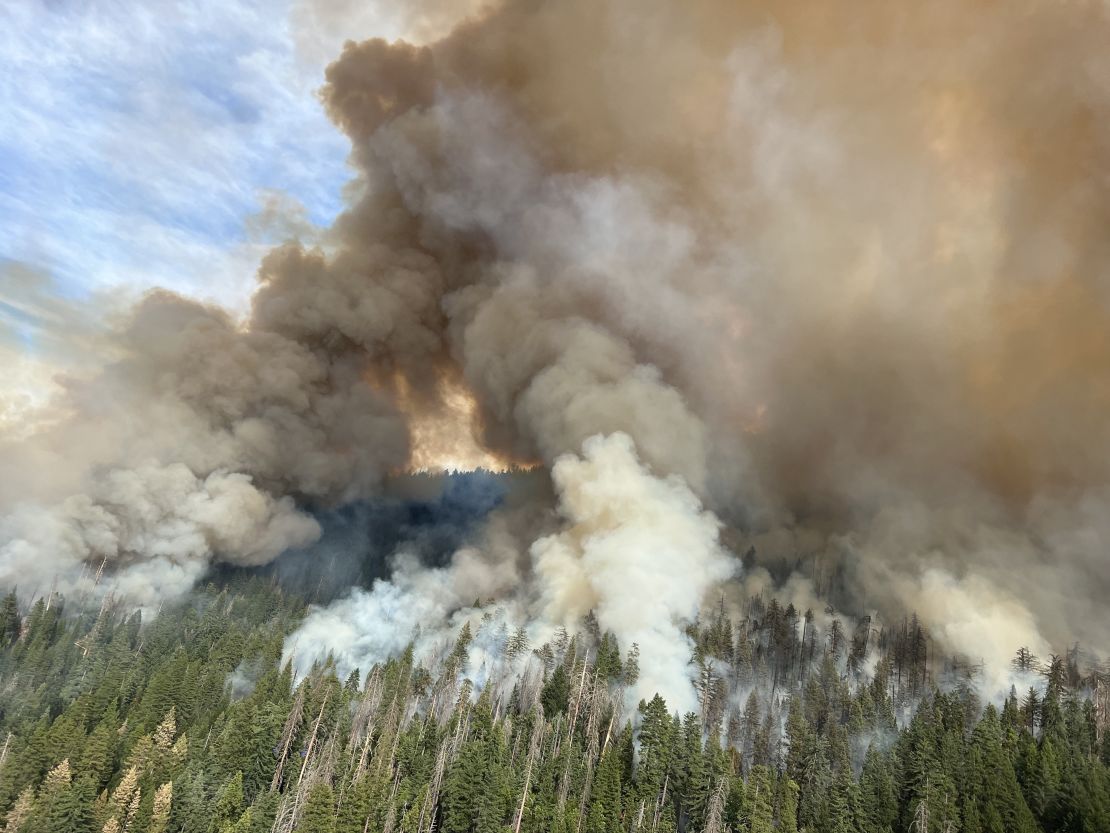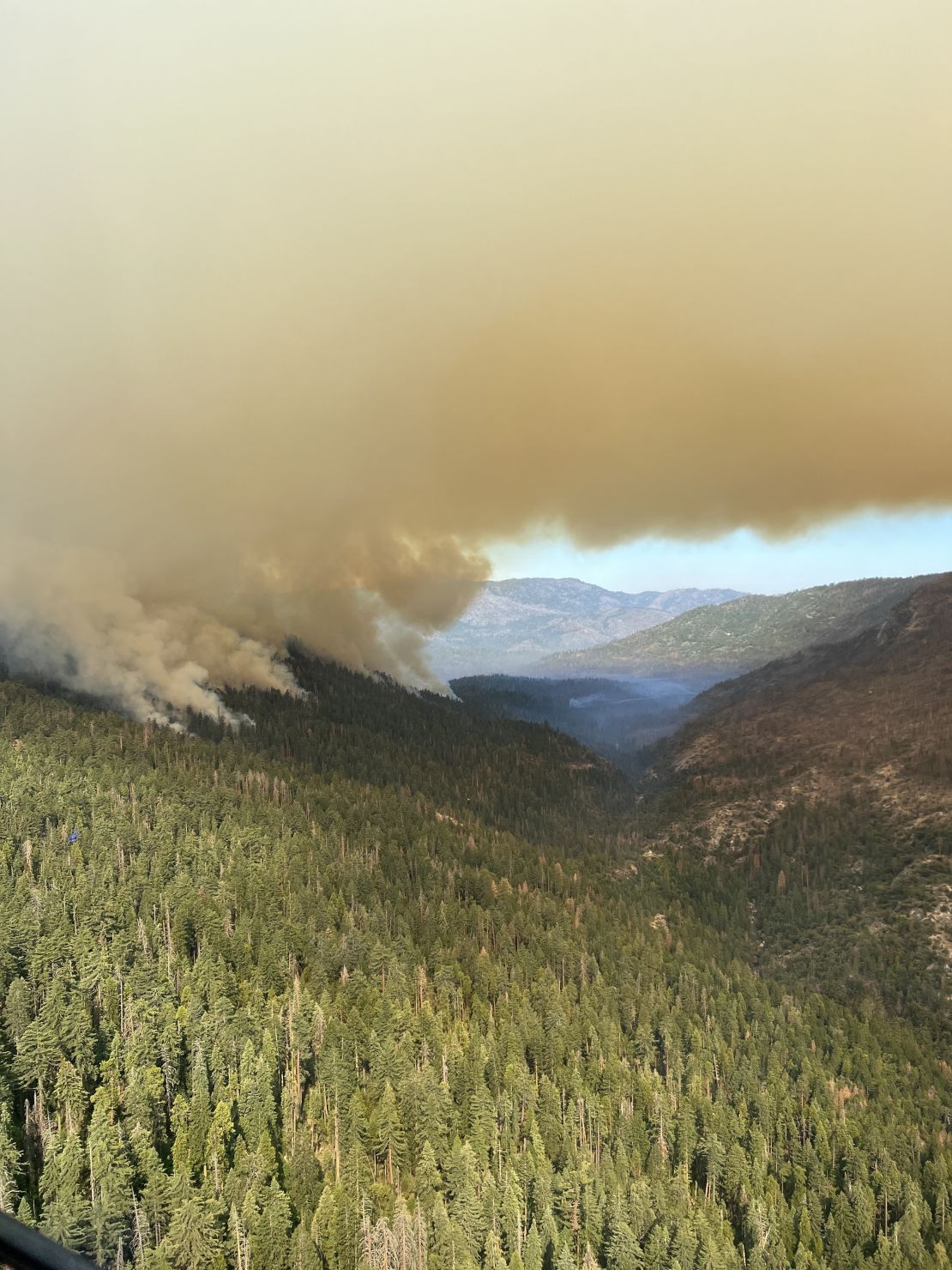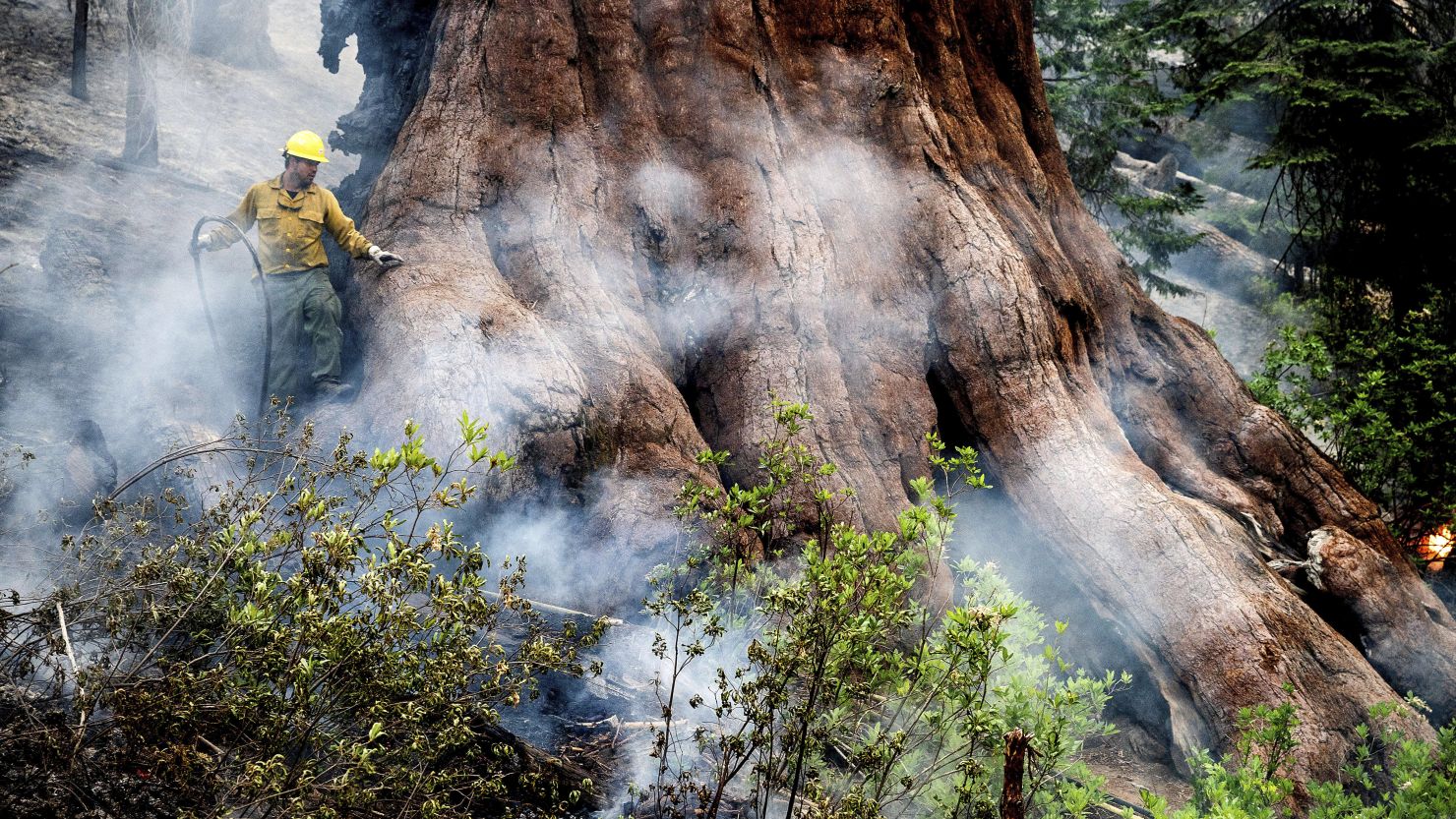A wildfire in California’s Yosemite National Park still threatens the famed Mariposa Grove of giant sequoia trees, but so far none of the trees has suffered significant damage, fire incident public information officer Robbie Johnson told CNN on Sunday afternoon.
The 1,591-acre Washburn Fire “has entered the grove, but the good news is because of prescribed burns and clearing out material on the ground, it’s clear in the Mariposa Grove,” Johnson said.
Johnson said fire crews have removed logs, dead trees, branches and undergrowth near the famed trees.
“And then firefighters did a prescribed burn to clear that out, so what we have is what’s like a ‘donut hole’ and it’s safe around it,” she said. “In fact one ecologist said he was pleased with the way the sequoias are being protected.”
Mariposa Grove is home to more than 500 giant sequoia trees, which can grow to more than 250 feet. The grove was founded in 1857 but the trees existed long before that, with some believed to be more than 2,000 years old.
Washburn Fire began July 7
Earlier Sunday, Scott Gediman, the park’s chief spokesperson, told CNN that flames were “very close, they are right around (the grove).”
He also said the fire was about a mile or two from the park’s oldest hotel, the Wawona Hotel, which was established in 1856, according to its website. Park officials have urged people in the Wawona campground and community to evacuate.
The Washburn Fire began July 7 and doubled in size from Saturday to Sunday, burning near the lower portion of the grove, park officials said earlier. A total of 360 fire personnel are working to contain the fire from the ground and air.

Crews are also working to protect communities roughly five miles north of the blaze as spotting continues, Gediman said.
“Fire is naturally part of the ecosystem, but it’s these high-intensity fires that are causing the damage that happened, for example, in the Creek Fire and the TCF complex last year in Sequoia National Park,” Gediman said.
Gediman said it is “steep, heavily forested terrain” and they are relying on air and ground support to protect the park. “Air support is certainly helpful, but we’ve got a lot of hotshot crews and firefighters on the ground that are going in to suppress the fire. So it’s really a ground and air attack, coordinated, that is going to get us to the suppression that we aiming toward as soon as we can.”
Fire crews had success at the heel of the fire, at its origin point near the Mariposa Grove area, Matt Ahearn, the operations section chief with California Interagency Incident Management Team 13, said earlier Sunday.
“Top end of the Mariposa Grove, fire has backed into the grove a bit,” Ahearn said. “We do have crews up on these edges, they’ve worked handline out of the bottom, direct handline all the way up and around. … We need to now reinforce with hose lays.”

Ahearn said that hotshot crews were on their way to the area and the fire’s acreage was expected to be updated later Sunday after aerial intelligence was completed.
In a statement posted to InciWeb – a site for coordinating fire response – officials said the fire was burning in difficult terrain “with continuous heavy fuels in and around the fire.”
“Significant tree mortality from 2013-2015 has left significant dead standing and dead fallen fuels. This also presents significant safety hazards to firefighters,” the statement said.
Sprinkler system installed to protect a famed Sequoia
Weather is forecast to get hotter through the week. However, fire scars from past fires about 1 to 3 miles from the Washburn Fire perimeter will help in slowing it, officials said.
Firefighters have put a sprinkler system around the Grizzly Giant, a famed Sequoia in Mariposa Grove, to protect it from the flames and park officials have said the grove will remain closed until further notice.
Yosemite is one of the most visited national parks in the US, drawing more than 3.3 million people in 2021. It encompasses nearly 1,200 square miles in the Sierra Nevada range in eastern California.
The Electra Fire also burns
Meanwhile, California crews are also battling the Electra Fire, which has scorched more than 4,400 acres across Amador and Calaveras counties, also in the Sierra Nevada, according to Cal Fire.
The blaze prompted the state’s first night-water-drop operation via helicopter Wednesday, when about 12,000 gallons of water were dumped on the flames, Cal Fire Battalion Chief Isaac Sanchez told CNN.
“The helicopter was brought in to assist in the cooling and containment of a firing operation which had taken place earlier in the afternoon,” Sanchez said. “While assigned to this operation, the helicopter identified additional areas where the fire had crept over the containment lines and was able to aid in their full extinguishment and containment.”
The western US has been ravaged by wildfires in recent years, exacerbated by drought conditions tied to climate change. In California alone, more than 2.5 million acres were destroyed in nearly 9,000 fires last year, according to Cal Fire.
Last month, officials in Southern California said they were bracing for another challenging summer and fall amid a shortage of firefighting crews and increased workloads.
The threat is not limited to California. Robert Garcia, the US Forest Service’s fire chief for the Angeles National Forest, said the summer months are off to a “concerning start.” Firefighting resources have been mobilizing since March to Arizona and New Mexico, where the Black Fire just became the state’s second-largest blaze in history.
“Southern California typically has a fire season of historically late June and then into the fall,” Garcia told CNN last month. “But we’re seeing activity now year-round.”
CNN’s Stephanie Elam, Melissa Alonso, Eric Levenson and Susannah Cullinane contributed to this report.



